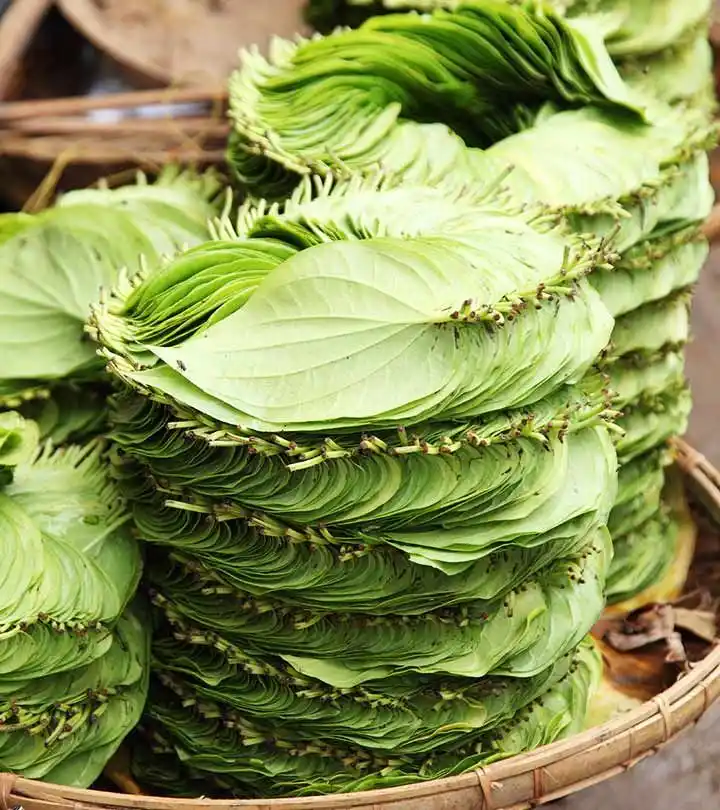
Dreamy Ambivert
June 8, 2025 at 02:05 AM
Betel leaves, also known as paan leaves, have been used for centuries in traditional medicine across South Asia. They're a powerhouse of essential nutrients, including proteins, fats, minerals, fiber, carbohydrates, potassium, calcium, and vitamin C.
Importance of Betel Leaves
Health Benefits
- *Improves Digestion*: Stimulates digestive enzymes, relieving bloating and constipation
- *Boosts Oral Health*: Antibacterial properties fight oral pathogens, reducing cavities and gum disease
- *Supports Respiratory Health*: Helps manage coughs, colds, bronchitis, and asthma
- *Enhances Wound Healing*: Accelerates healing and prevents infections with antimicrobial and anti-inflammatory properties
- *Relieves Stress and Anxiety*: Mild stimulant effects alleviate stress and promote mental clarity
- *Boosts Immunity*: Strengthens immune system with vitamin C and antioxidants
- *Regulates Blood Sugar*: May help manage diabetes with bioactive compounds
- *Supports Cardiovascular Health*: May lower cholesterol levels and reduce heart disease risk
- *Promotes Weight Loss*: Suppresses appetite and increases metabolism
- *Enhances Skin Health*: Combats acne, reduces inflammation, and promotes healthy skin
Other Uses
- *Skin Care*: Lightens dark spots, fights acne-causing bacteria, and soothes irritated skin
- *Hair Care*: Strengthens hair roots, reduces hair fall, and stimulates hair growth
Precautions
- Consume betel leaves in moderation to avoid stomach irritation
- Avoid chewing with tobacco or areca nuts to prevent oral cancer and other health issues
- Discontinue use if you experience allergic reactions or adverse effects
Nutritional Value (per 100g)
- Energy: 49.85 kcal
- Protein: 3.49 g
- Fat: 0.73 g
- Fiber: 1.96 g
- Carbohydrate: 7.33 g
- β-carotene: 3220 mcg
- Vitamin C: 20.66 mg
- Antioxidants: 78.15 mg
While betel leaves offer numerous benefits, it's essential to use them cautiously and consult a healthcare professional if you have any concerns
